CODES AND CONVENTIONS
OF THE SELECTED MUSIC VIDEO GENRE
By Fasiha Zaheer
- Codes and Conventions are a firm set of rules that have been adapted over a period of time that are occasionally defied.
- Codes and Conventions of music videos use different techniques to construct meaning.
- The purpose of them is to grant the audience to become aware of them with a particular genre and be able to distinguish it from other genres.
- It provides a structure to the audience.
- The sole purpose is to portray, identify and recognize the genre.
- Certain conventions depend on the genre of the music in the video.
- Due, to which there are certain expectations from the music video for a particular genre.
These techniques can be divided into two types:
o Technical
How equipment and technology are used to construct meaning.
Camera (Shots, Angles)
Editing (Pace and style)
Sound (Diegetic and non- diegetic)
o Symbolical
Meanings created beyond what is obvious to see.
Body Language and Facial expressions (including dance routines gestures & poses)
Mise-en-scene
-Lighting -Costume
-Location -Hair & Makeup
-Props -Color Palette
Codes and Conventions of music videos vary from genre to genre.
The mundane conventions include:
1. Styles
2. Camera
3. Editing Techniques
4. Sound
5. Mise-en-scene
STYLES
All of the music videos are categorized into 3 types:
1. Narrative based
2. Performance based
3. Conceptual/Artistic based
Narrative
Narrative based music videos have the following features:
- short silent movie with a soundtrack playing in the background.
- it is story based which easy for the audience to follow.
- it has very less or no lip synchronization
An example of a purely narrative based music video will be the Indie Rock song "Take Me To Church" by "Hozeir'"in which the artist is not at all in the music video. The music video is about two men who are in the same sex relationship and when the community learns about the sexuality of one of them they react violently towards it.






Performance
Performance based music videos have the following features:
- Revolves around the artist/band singing
- 1 or more than 1 setting can be used
- The performance could be:
- Instrumental
- Concert
- Singing
- Choreographical Dance
An example of a performance based music video will be the
Pop Rock song "Before the Worst" by "The Script" in which the band is seen performing in a concert hall.




Conceptual
Conceptual based music videos have the following features:
- Based on a single idea or concept.
- The concept can be artistic or symbolic.
- Artistic: there is no perceivable visual narrative or theme based.
- Symbolic: it consists of symbols to build meaning.
An example of a conceptual based music video will be the Indie Pop song "Somebody that I used to Know" by "Gotye ft Kimbra". It uses video technology to describe the meaning of the song in terms of relationship and personal emotions through use of colors and body language. It tells us about the emotions of two people who were in a relationship. There is a presentation of colors, all the background is changing with different colors.

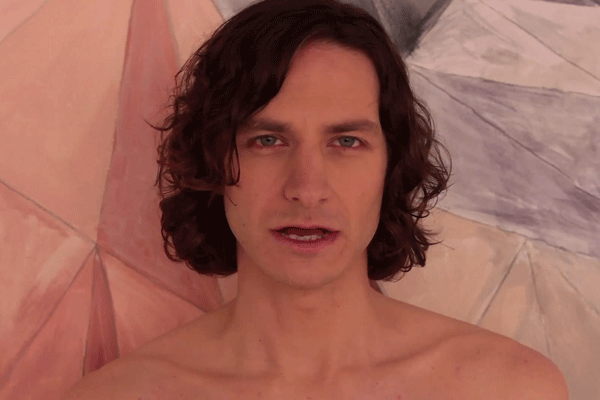
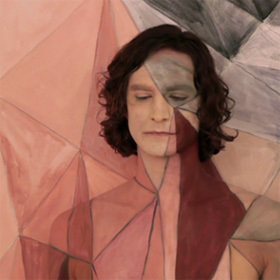
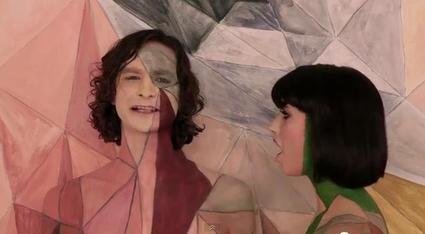
CAMERA
The manner the camera is used is very critical when producing a music video because it all comes down to the angles and shots used in the music video. A variety of shots, angles and movements can be used to create the required effect.
A number of shots and movements are used within a music video so that the audience can relate to the expressing thoughts and feelings within it and they can perceive what is happening in the music video. Particularly, camera movements are also used to follow the artist or their performance.
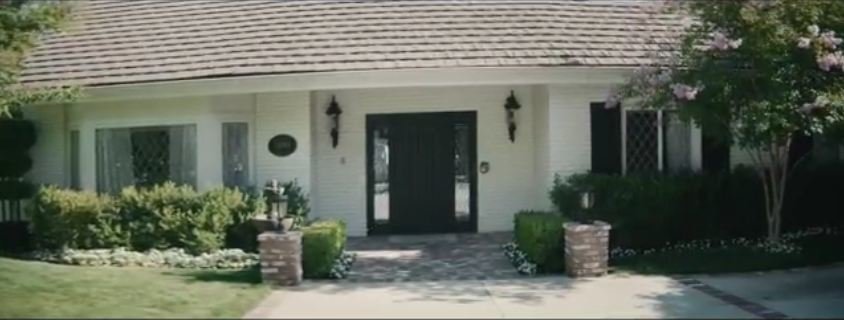
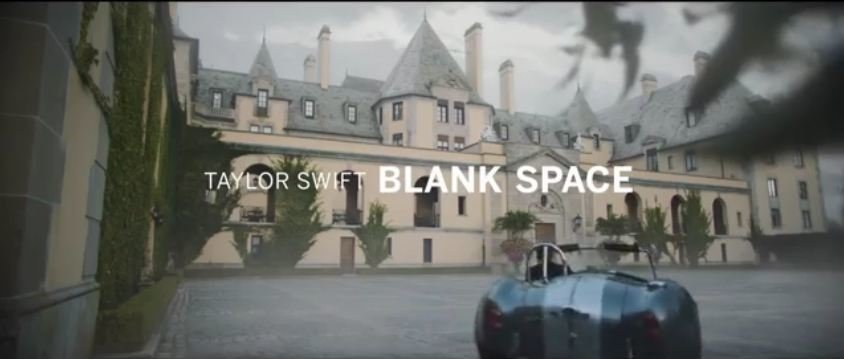
Establishing Shot:
Establishes the setting of a scene involving a distant framing, that shows the spatial relations among the important figures, objects, and setting in a scene. It shows where the action is taking place.
For narrative based music videos it helps build up the structure of the music video introducing us to a location and the space relationships inside it.
The shots usually used are:
For example "Sam Smith's" Pop/R&B song "I'm Not the Only One" begins with an establishing shot of a mediocre house. Which makes the audience assume that the music video will revolve around an ordinary person by the appearance of the house who lives in it.
Another, example will be "Taylor Swifts" Pop song "Blank Space" which begins with an establishing shot of a castle with a vintage car arriving which gives the audience the idea that the music video will be about the man in the car and probably Taylor who lives in the castle.

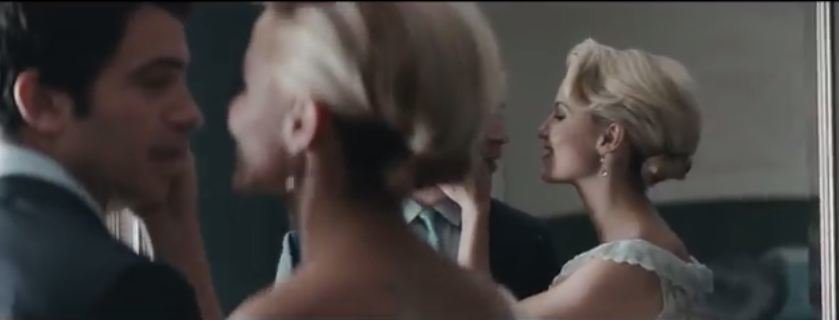
Close Up:
The sole purpose of them is to concentrate on the expressions. However, they also help to keep the artist as the center of attention as the record label demands them. As they use the star image of the artist as a selling point to increase the sales of the music videos.
Close ups also consist of the artist looking into the camera by breaking the fourth wall which gives the impression that the artist is directly addressing the audience.
Extreme Close Up:
Purpose of the Extreme Close up shot is to show extreme detail or to capture a specific action or could be used to increase the intensity of a particular action or expression.
Close up and Extreme Close up:
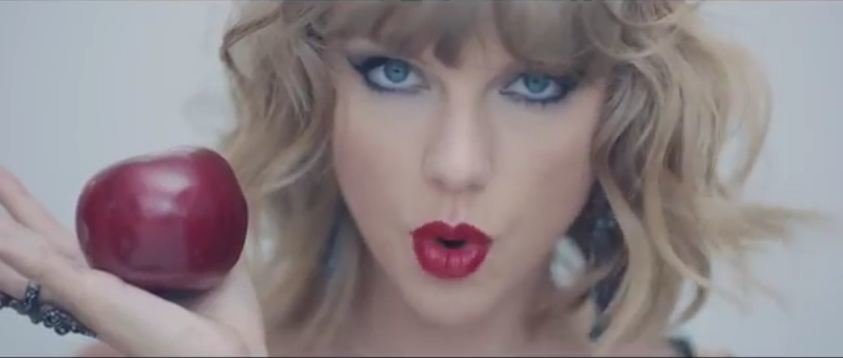
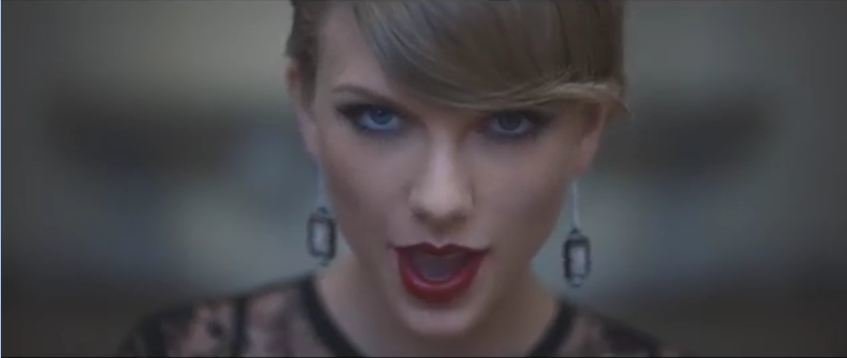
Close up:
For example in "Taylor Swifts" Pop song "Blank Space" we see various close ups of Taylor Swift. This makes the music video being revolved and focused on her. Her clever and crazy personality is perceived from the close ups. it is also observed that only when directly addressing the audience close up of Taylor Swift are used.
Extreme Close Up:
For example in "Miley Cyrus" Synthpop song "Wrecking Ball" we see various close ups of Miley Cyrus. Her expressions become prominent and how she feels and het emotions are perceived strongly by the audience from these close ups.
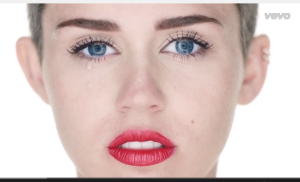
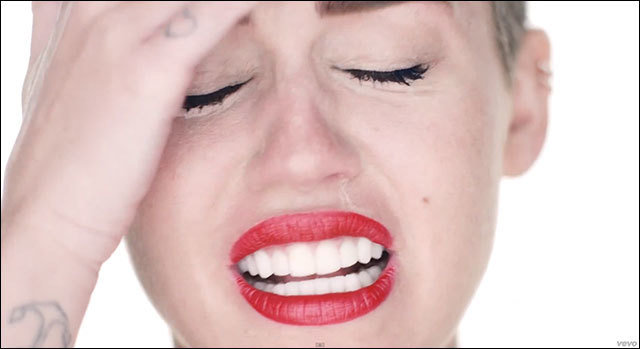
Mid Shot:
A shot that frames actors, normally from the waist up. It is a all purpose shot allowing the viewers to pick up on the character's movements and gestures.
It shows some part of the subject in more detail, whilst still showing enough for the audience to feel as if they were looking at the whole subject.
Full Shot:
It shows the image as approximately "life" size that is corresponding to the real distance between the audience and the screen. showing the entire human body, with the head near the top of the frame and the feet near the bottom. It is also used to stress the environment or setting of a scene.
The camera movements usually used are:
Pan:
When the camera is moved from left to right.
Tilt:
Camera is moved from upwards to downwards.
Dolly in and out:
Dolly in is a step towards the subject with the camera, while dolly-out means to step backwards with the camera, keeping the zoom the same.
Trucking:
Trucking is like dollying, but it involves motion left or right. Truck left means "move the camera physically to the left while maintaining its perpendicular relationship."
Crane shot:
A crane can be used to lift a camera (and operator, if it's big enough) from low to high shooting positions.
The position of the camera determines the angle. It is basically how a shot is composed. A certain angle provides a unique perspective and can affect the audience perception about what is happening on the screen. It also helps to show different images and give the feeling required in the production of music videos.
The camera angles usually used are:
High Angle
Low Angle
Birds Eye
Dutch Tilt
High Angle:
Low Angle:
The camera is positioned above eye level, with the camera shooting down on the subject. A high camera angle is very useful for showing the audience an overview of the scene or shooting area. It also tends to make the subject appear smaller in size and stature.
Looking down on a subject suggests a feeling of loneliness and a lack of power. This has the effect of diminishing the subject, making them appear less powerful, less significant or even submissive.
Birds Eye:
In a low angle shot the camera is positioned below eye level, with the camera shooting up at the subject. Shooting up from a low angle makes the subject appear larger and suggests a feeling of power and dominance.
being more powerful or dominant.
The scene is shown from directly above. This is a completely different and somewhat unnatural point of view which can be used for dramatic effect or for showing a different spatial perspective.
In drama it can be used to show the positions and motions of different characters and objects, enabling the viewer to see things the characters can't.
The bird's-eye view is also very useful in sports, documentaries, etc.
Also called canted angle, a Dutch tilt has the camera leaning sideways, transforming the horizon into a slope creating a more dynamic composition. Though rare, canted angles can be employed with great artistic effect to disorient and disturb the viewer. This creates an interesting and dramatic effect. 'Fe'eling of excitement, suspense or fantasy to the viewer. Since this is a view of the world that we are not used to seeing, this effect should be used sparingly.
Dutch Tilt:
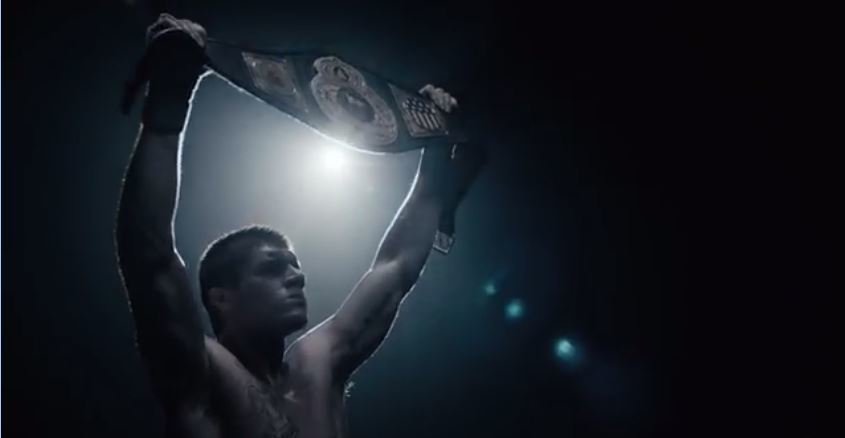
EDITING
Editing is a process of cutting and assembling the footage to produce a finished product. There are various different techniques when it comes to music videos. The editing techniques usually used are:
Jump Cut
Split Screens
Computer Generated Images
Slow Motion
Split Screens:
split screen is the visible division of the screen, traditionally in half, but also in several simultaneous images, rupturing the illusion that the screen's frame is a seamless view of reality, similar to that of the human eye.
Computer Generated Images:
is the application of computer graphics to create or contribute to images in art, printed media, video games, films, television programs, commercials, videos, and simulators
Slow Motion:
time appears to be slowed down/Slow motion can also be used for artistic effect, dramatic effect or to create a romantic or suspenseful aura or to stress a moment in time.
Jump Cut:
An elliptical cut that appears to be an interruption of a single shot. Either the figures seem to change instantly against a constant background, or the background changes instantly while the figures remain constant.
Jump cuts are used extemsively in music videos.
Sounds are essential in any music video two forms exist the
-Digetic
-Non- digetic.
Digetic sounds are those for which the sources are present within the footage for example the voices of the charters. Non-digetic sounds are those for which the source is not present in the footage. The soundtrack itself is a non-digetic sound. The sound in the music video is basically the soundtrack played which is obviously very essential.
SOUND
Mise-en-scene
Is the visual environment and can be defined as the a articulation and occupation of cinematic space. It presents place and the people in the film. It provides spatial and temporal awareness and informs the audience where, when, whom or what they are watching. The visual movement or “everything in the frame” creates meaning for the audience through the:
LIGHTING
The lighting in a music video can create different views by the way the scene is lit , it allows the audience to recognize the genre and style of the music video. A bright light draws the viewers attention, but a scene can be lit by using – natural lighting i.e. from the sun or existing light sources, or by using artificial lights, Strobe lights and colored lights you would most likely see in a dance pop/hip hop videos, but be very rare in say country type music videos . You can see the use of light differ according to the genre in these 2 examples ‘Forever and Always by Shania twain’ – which is country music, and a famous dance pop song ‘ Release me by Agnes ‘which is dance pop.
COLOR PALETTE
In music videos the color palette is set very carefully according to the genre of the music video. It also plays a part in setting the mood and the atmosphere within a music video. This could be done by selecting lighting, costumes, hair, makeup, locations, the way the camera is angled as plays a part in positioning the colors we see in music videos.
LOCATION
The location, and scene of a music video can not only show the audience where the artist is, but also can decide on the genre, for instance locations for instance the beach, or in a car, at a party, these sort of locations you would usually find in a dance pop music video, Due to the happy and lively feel they give. If the music video was say filmed in a street, or modern house, these are the typical locations you might find a gang, and you would relate this to grime/Hip-hop type video. The location influences the genre, but also be chosen purposely to relate to the song.
PROPS
In most music videos sometimes props are used to illustrate the narrative, and when linking the lyrics with visuals, props are commonly used. The props in a music video add to the entertainment side, and can be used in a fun imaginative way.
One music video that uses props to make the video more entertaining is ‘Telephone – Lady Gaga ft Beyonce’
HAIR AND MAKE UP
The way an artists hair is, is done for a purpose, it can also show a character’s personality, or be done as a way of attracting the audience. Depending on the target audience. Hair like makeup is really just about style, and fashion and what’s in. However, it also has a strong relation to genre and narrative. Artists are styled in ways which determine how they want to be perceived by their audience.
For example, in Katy Perry’s ET music video, makeup artists deceive the audience by making Katy Perry look like an extra terrestrial. This conforms to the lyrics in the song, due to the fact that Katy Perry sings about an Extra Terrestrial.
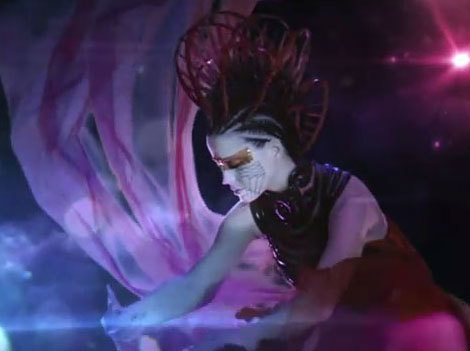
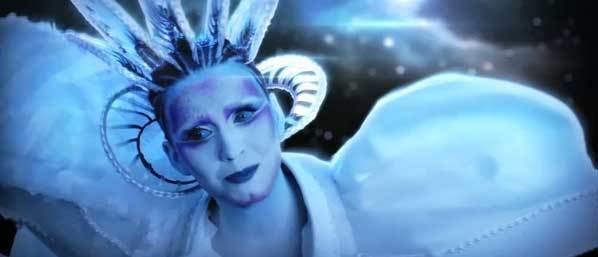
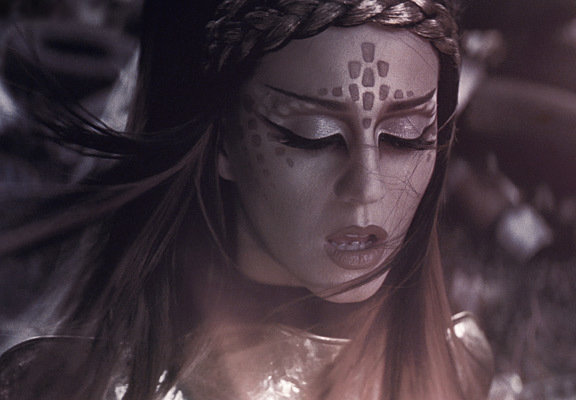
For example artists also style themselves according to their star image , ‘Lana Del Rey’ follows the 60's style in her music videos.
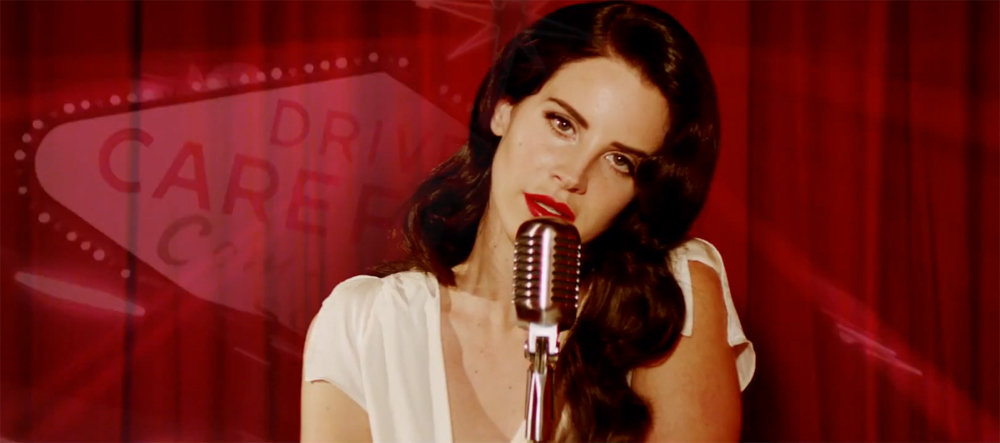
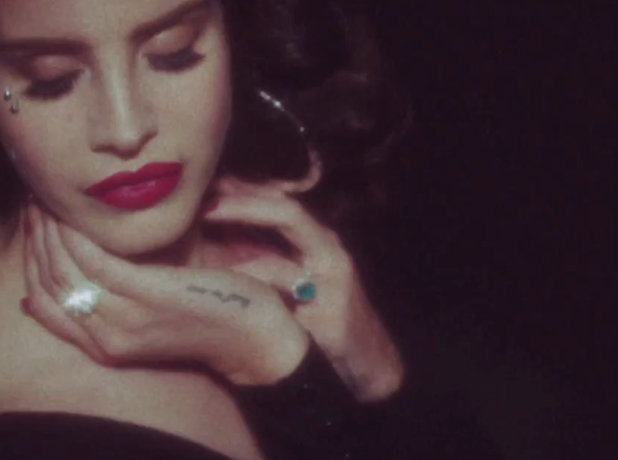
COSTUME
The costume is usually used to represent certain characters in different ways. Different artists would also wear different clothes to represent what there are portraying in the music video.
For example, Katy Perry’s pop song California Girls uses props that have specific references to sweet foods such as candy canes, lollipops, jelly, cream, and also board games and sand for beaches. This provokes audience’s connotations of sweet food, relating to good times and fun. The fact this uplifting song also uses the graphological field of sweet foods could pragmatically imply that the song describes Californian girls as sweet and fun.
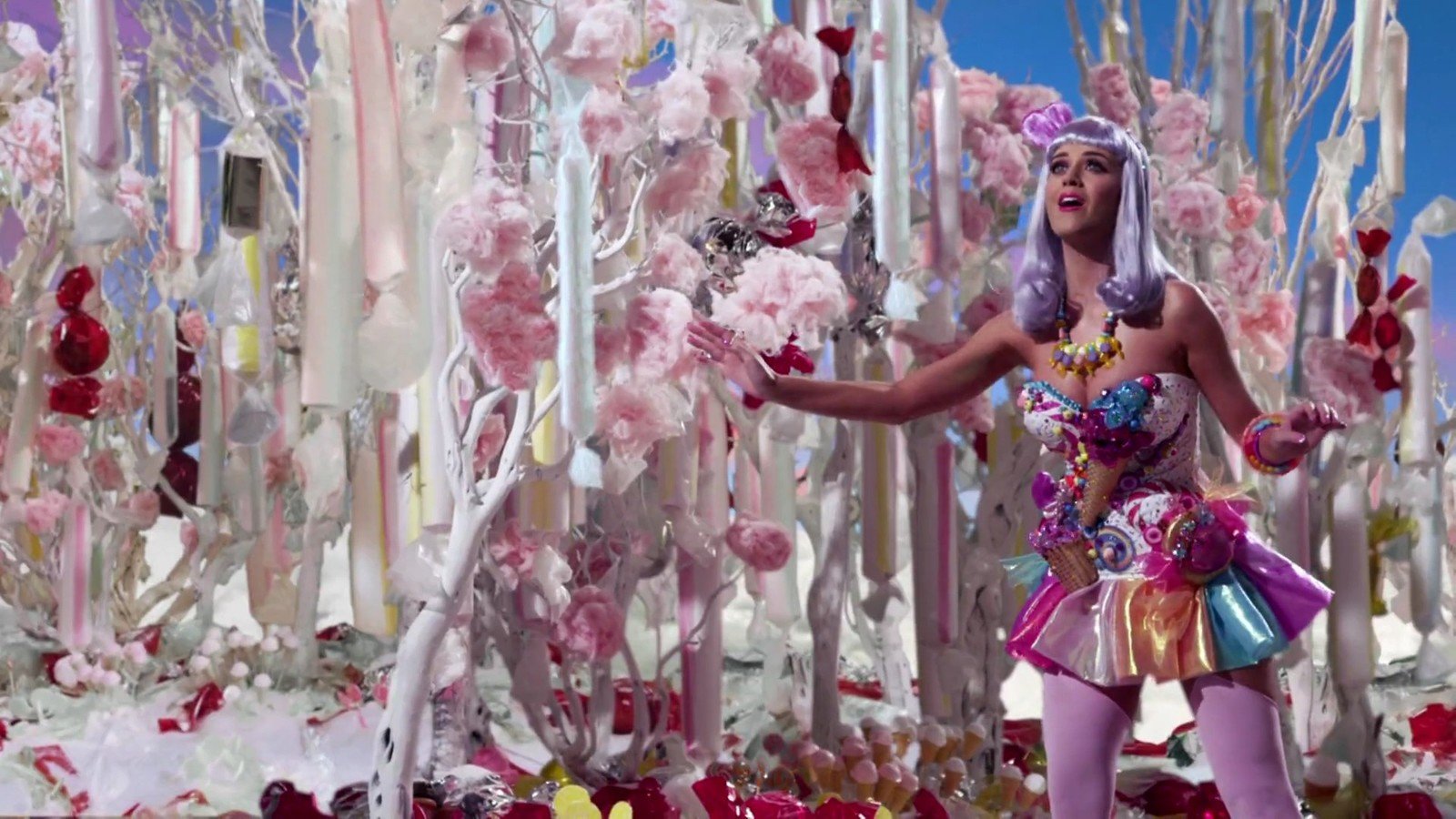

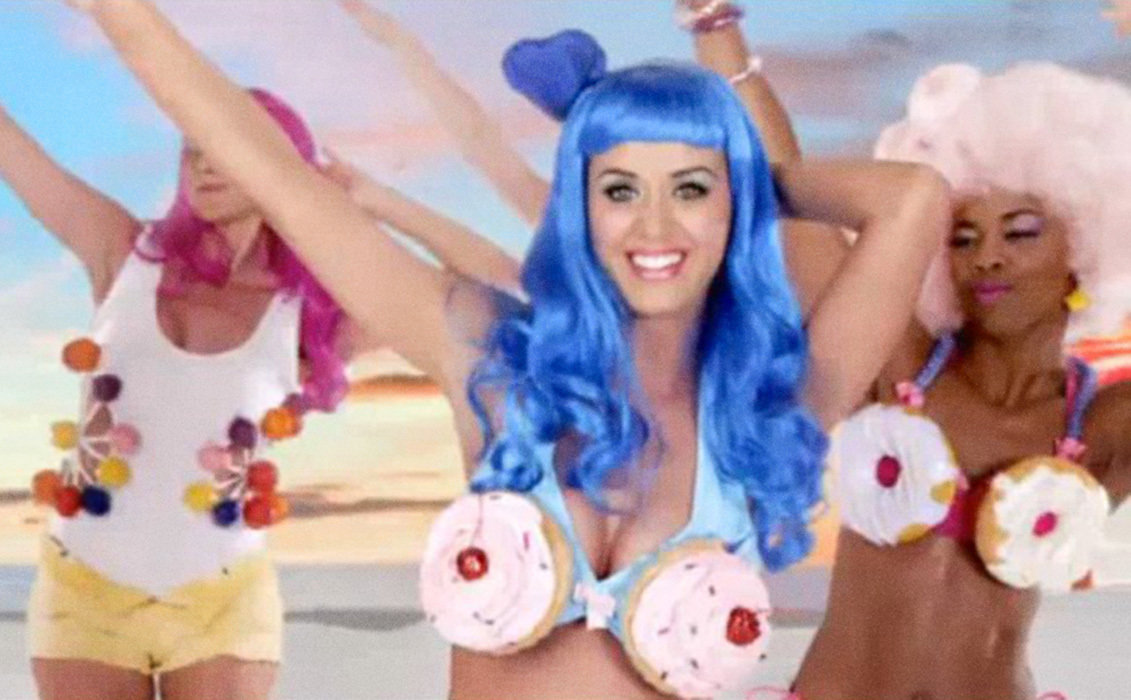
deck
By fasihazaheer
deck
- 436



